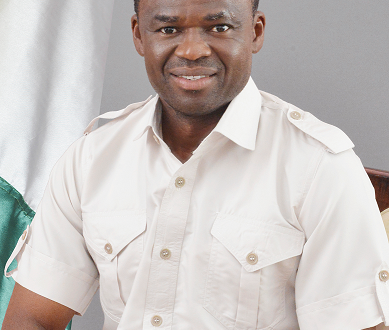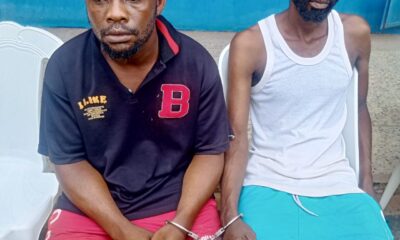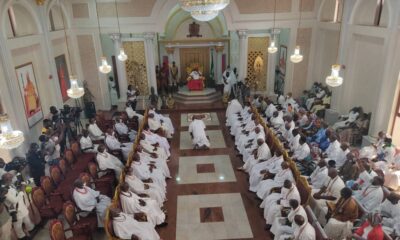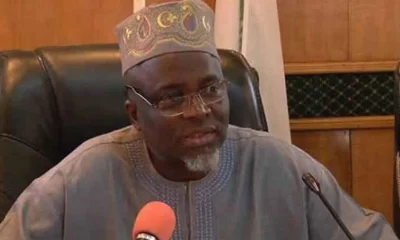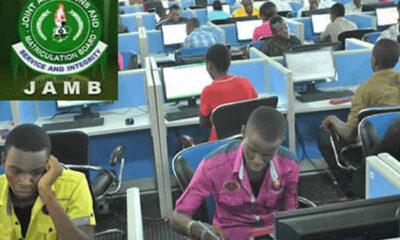Headline
State Assembly Polls: 9 Days After, INEC Yet To Release Results Of 183 Constituencies
Published
1 year agoon
By
Editor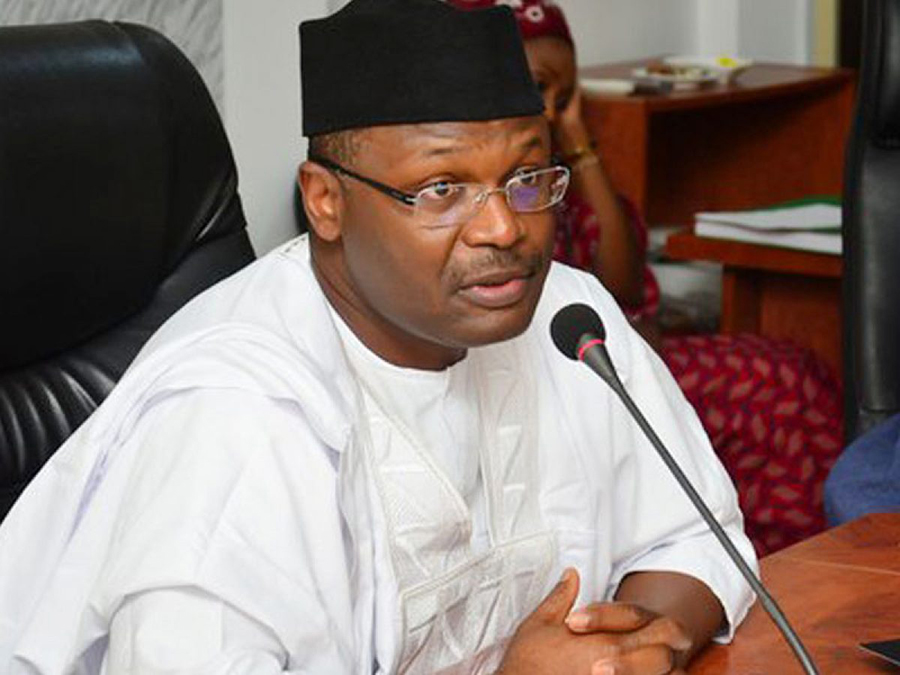
Nine days after the March 18 Governorship and State Assembly elections, the results of 183 constituencies across seven states have not been published by the Independent National Electoral Commission, INEC.
Some of the polls have been declared inconclusive while the commission is withholding the results in some states.
Also, governorship election results in Kebbi and Adamawa, two of the 28 states where the polls were held have been declared inconclusive.
Meanwhile, the INEC has fixed April 15 for the conduct of supplementary polls for two governorship, 11 Senate, 35 House of Representatives and unnumbered state assembly slots.
Adamawa, Yobe, Jigawa, Sokoto, Kano, Kaduna and Zamfara top states with awaited assembly polls results.
In Adamawa, the INEC Public Affairs Officer, Malam Dahiru Jauro, told Vanguard that “the issue is being handled by the legal department and the man in charge is not on seat. By Wednesday, we will issue certificates of return to the winners so the document (result) will be ready on Tuesday.”
READ ALSO: JUST IN: INEC To Hold Supplementary Elections April 15
In Sokoto, an official said, “the Acting REC, Auwal Aliyu Kangiwa, just got the list of the results today (yesterday) and we are planning to release it tomorrow (Tuesday).”
In Kaduna, a source said, “we are still waiting for the official Kaduna Assembly elections result. We don’t know why it was delayed.”
APC leads in the battle for state legislatures with 421
In the battle for the 993 state houses of assembly slots, no fewer than eight parties have won 810 seats with the ruling All Progressives Congress, APC, winning most with 421 slots. The main opposition Peoples Democratic Party, PDP, has 303 seats; the Labour Party, LP got 36; All Progressives Grand Alliance, APGA, 22; Social Democratic Party, SDP, 10; and Young Progressives Party, YPP 9. The rest are New Nigeria Peoples Party, NNPP 8; and African Democratic Congress, ADC 1.
APC dominates four zones, PDP one
From the results released, the APC won more seats in four zones (South-East, South-West, North-Central and North-East) while the PDP dominated in South-South.
In the South-East, where three assembly polls are conclusive, the APC cornered 45 seats followed by the LP 32; PDP 25; APGA 18 and YPP 6.
The APC repeated the feat in the South-West where it won 86 seats compared to PDP’s 76 and LP’s 2 while one constituency is inconclusive.
In the South-South, the PDP had the upper hand with 111 slots while the APC had 35 positions. YPP had 2 and LP one while constituencies were inconclusive.
Also, in the North-Central where four constituencies are pending, the APC won 100 seats while the PDP got 42 slots. Other parties that registered their names as winners are SDP-4, NNPP-2, YPP-1, LP-1 and ADC-1.
READ ALSO: INEC Clears Air On Attack On Mahmood Yakubu’s Purported Home
In the Northeast, results from four of the six states show the APC to have won 61 seats compared to PDP’s 39, NNPP’s 3, and SDP’s 1.
How parties fared in states
South-East
Abia: LP 10, PDP 11, YPP 2, APC 1
Anambra: APGA 17, LP 8, YPP 3, PDP 2
Ebonyi: APC 18, PDP 2, APGA 1, LP 1, Inconclusive 2
Enugu: PDP10, LP 14
Imo: APC 26, Inconclusive 1
South-West
Lagos: APC 38, LP2
Ekiti: APC 23, Inconclusive 1
Ogun: APC 16, PDP1
Ondo: PDP 22, APC 4
Osun: PDP 25, APC 1
Oyo: PDP 28, APC 4
South-South
Akwa Ibom: PDP 24, YPP 2, Inconclusive 1
Bayelsa: PDP 17, APC 4, APGA 2
Cross River: APC 19, PDP 5, LP1
Delta: PDP 22, APC 7
Edo: PDP 12, APC 8, LP 1, Inconclusive 3
Rivers: PDP 31, Inconclusive 1
North-Central
Benue: APC 21, PDP 10, LP1
Kogi: APC 22, PDP 2, ADC 1
Kwara: APC 23, PDP 1
Nasarawa: APC11, PDP 8, SDP 3, NNPP2
Niger: APC 16, PDP 5, SDP 1, Pending 4
Plateau: PDP 16, APC 7, YPP 1
North-East
Bauchi: PDP 22, APC 6, NNPP 1
Borno: APC 28
Gombe: APC 20, PDP 4
Taraba: PDP13, APC 7, NNPP 2, SDP 1, APGA 1
North-West
Katsina: APC 32, PDP 1, invalid 1
Kebbi: APC 13, PDP 1, Inconclusive 10
Zamfara: PDP 6, Others not released
Kaduna: APC 4, Others not released
INEC to hold Adamawa, Kebbi, 94 constituency elections April 15
Meanwhile, the Independent National Electoral Commission, INEC, said yesterday that all outstanding governorship, National and State Assembly supplementary elections will take place on Saturday, April 15, 2023.
In a statement, INEC National Commissioner in charge of the Information and Voter Education Committee, Festus Okoye, said: “The commission met today (yesterday) March 27,’ 2023 and reviewed the areas where supplementary elections are required to conclude the outstanding Governorship, National and State Assembly elections across the country.
READ ALSO: Rivers: Opposition Parties Question Results Announced By INEC
‘’It would be recalled that 26 state governorship, 104 senatorial, 329 federal and 935 state constituency elections have been concluded and winners declared.
“Consequently, supplementary governorship elections will be held in Adamawa and Kebbi states, five senatorial districts, 31 federal and 58 State Assembly constituencies. ‘’Owing to the competitive nature of the elections, especially for legislative seats, supplementary elections will be held in just a few polling units in some constituencies.
“A comprehensive list of the polling units by State, Local Government, Registration Area, registered voters and PVCs collected will be published on our website on or before Wednesday, March 29, 2023.
“Meanwhile, the commission has fixed Saturday, April 15, 2023, for the conduct of the supplementary elections in the affected polling units nationwide.
‘’We appeal to all political parties, candidates and stakeholders to note the date and locations of the supplementary elections. The earlier accreditation for polling and collation agents, observers and the media subsists for the supplementary elections.
“The commission, once again, urges political parties, candidates and their supporters to see the exercise as an election and not war.
‘’They should avoid incendiary statements and negative mobilisation so that the elections can be conducted and concluded as scheduled.’’
VANGUARD
You may like


Edo Guber Final List : Group Knocks LP, Commends, INEC, Yakubu


Full List: INEC Displays Edo Governorship Candidates Of Political Parties


19 Parties To Feature In Ondo Governorship Election – INEC


INEC Disowns LP’s National Convention


INEC To Publish Edo Gov Candidates’ Credentials Saturday


INEC Gives Updates On Edo, Ondo Guber Polls
Headline
PICTORIAL: C&S Church Ayo Ni O Installs New Leader
Published
3 hours agoon
May 2, 2024By
Editor
The Cherubim and Seraphim (S&S) Movement Church Worldwide, on Wednesday, formally installed Prophet Emmanuel Alogbo as the 6th Baba Aladura and spiritual head of the church.
Alogbo was appointed the acting spiritual head in November 2023 following the death of his predecessor, Samuel Abidoye, who died on November 12, at the age of 103.
A statement published on the official website of the church reads, “The ascension of Most Senior Special Prophet Dr. Emmanuel Abiodun Alogbo to the revered position of Spiritual Father and Chairman of the Cherubim and Seraphim Movement Church signifies a pivotal moment in the history of the church, ushering in a new era of leadership and guidance for its global congregation.”
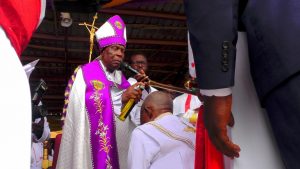
READ ALSO: Officer Who Shot Man Dead During Fuel Queue Tumult Identified — Lagos Police
Alogbo’s installation was reported to have been attended by important figures in the church, “including the Olori of Cherubim and Seraphim Unification, His Most Eminence Pro. Dr. S. A. Alao J.Pil., who performed the anointment, which added to the solemnity and grandeur of the occasion.”
Alao was said to have charged the new Baba Aladura to embrace his role with strength and courage.
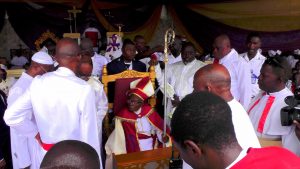
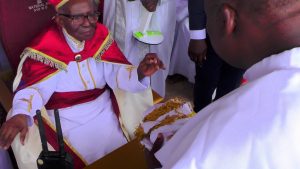
Congregants were also said to have recognised Alogbo as an embodiment of divine wisdom, compassion, and spiritual insight.
In his pledge to the CSMC Worldwide, the new Baba Adura was quoted assaying, “I solemnly pledge to continue the good work of moving our beloved church forward, which the late Baba Aladura Prophet Samuel Adefila Abidoye started.
“It is my firm commitment to ensure that the C&S Movement Church continues to march on, spreading its message of faith and love to all corners of the globe.”
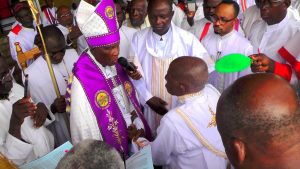
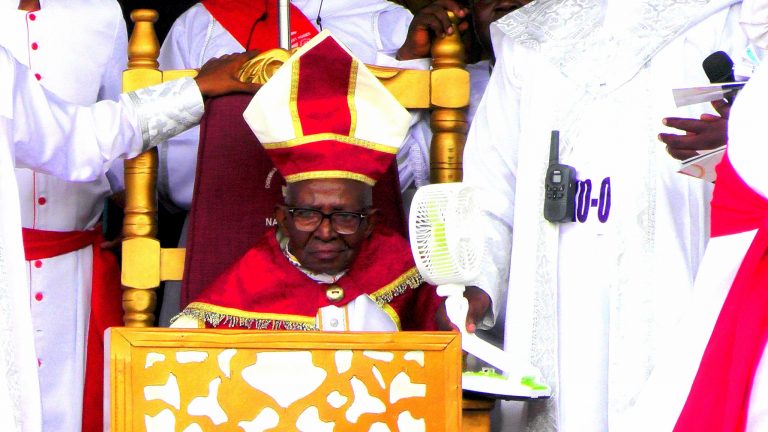
Headline
Nigerian Man Extradited From Malaysia, Convicted For $6.3m Fraud In US
Published
6 hours agoon
May 2, 2024By
Editor
A federal jury in New Haven, Connecticut, Wednesday, convicted an extradited Nigerian national, Okechukwu Osuji, for engaging in a business email compromise scheme out of multiple countries, including the United States.
This was revealed in a statement by the US Department of Justice on Thursday, saying that Osuji and his accomplices, John Wamuigah and Tolulope Bodunde defrauded their victims of over $6.3 million.
The jury convicted Osuji of conspiracy to commit wire fraud, wire fraud, and aggravated identity theft.
Principal Deputy Assistant Attorney General Nicole M. Argentieri, head of the Justice Department’s Criminal Division, said, “Osuji led a network of scammers in Malaysia and elsewhere in a sophisticated business email compromise scheme to defraud victims of millions of dollars.”
READ ALSO: Nigerian Sues Malaysia Govt N406m For Unlawful Detention
“Today’s conviction is another example of how the department’s collaboration with international law enforcement partners enables us to bring cybercriminals to justice in the United States.”
US Attorney Vanessa Roberts Avery for the District of Connecticut added, “While it is often difficult to identify and bring to justice cybercriminals operating overseas, today’s verdict demonstrates the expertise of the FBI and Stamford Police in uncovering this criminal network, and the shared commitment of our counterparts in Malaysia to ensure that fraudsters are held accountable in a court of law.
“We will continue to work to root out those who engage in internet fraud schemes, no matter where in the world they operate, and achieve justice for victims of these crimes.”
“The defendant perpetrated a complex international business email compromise scheme and laundered millions in stolen proceeds,” said Executive Assistant Director Timothy R. Langan Jr. of the FBI’s Criminal, Cyber, Response, and Services Branch.
READ ALSO: EFCC Arraigns Nigerian Who Posed As Woman To Dupe Malaysian
“This conviction is the result of hard work and close collaboration between the FBI and our local and international partners. Together, we will work aggressively to bring to justice anyone who engages in fraud and theft against Americans, no matter where they are in the world.”
“Today’s verdict provides a bit of closure to some victims of these often financially crippling crimes,” said Special Agent in Charge Robert Fuller of the FBI New Haven Field Office.
“It also displays our international ability to bring criminal actors to justice despite the complexities of their crimes. We want to thank all of our law enforcement partners here and abroad, as well as the U.S. Attorney’s office, for their dedication to serving justice.”
READ ALSO: Naira Abuse: EFCC, Cubana Chief Priest To Settle Out Of Court
Osuji who was deported by Osuji is slated to be sentenced on July 24 and faces a mandatory minimum of two years on the identity theft count and a maximum penalty of 60 years in prison on the wire fraud and conspiracy counts.
A Federal District Court judge will determine any sentence after considering the US Sentencing Guidelines and other statutory factors.
Osuji was arrested in Malaysia and extradited to the US in 2022. His alleged co-conspirator, Wamuigah, remains in Malaysia and is pending extradition proceedings, while another co-conspirator, Bodunde, pleaded guilty on February 16.
Headline
How Two Kenyan School Dropouts Made Prosthetic Arms For People With Disabilities
Published
13 hours agoon
May 2, 2024By
Editor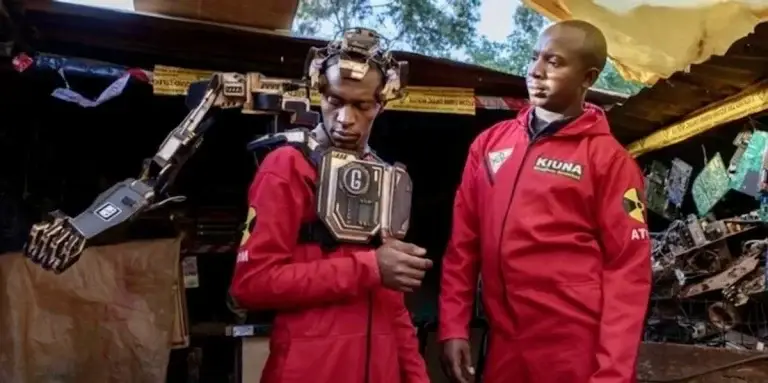
Two young Kenyan inventors have invented bio-robotic prosthetic arms from waste materials to help improve the lives of the physically challenged people in 2021.
Both David Gathu and Moses Kiuna were at the age of 29 when they designed a bio-robotic prosthetic arm in helping the people that have lost their limbs.
Recounting their ordeal before venturing into the invention, the duo said they were forced to drop out of college because of the expensive school fees but did not let the challenges steal their vision.
Gathu and Kiuna accomplished their dream to help their communities in a workshop in Kiambu county in Kikuyu, Kenya, north of the capital Nairobi.
READ ALSO: 14-year-old Boy Killed In London Sword Attack
According to Face to Face Africa, the workshop was basically a shed made out of worn-out rusted iron sheets standing next to a chicken coop.
The floor was covered with gravel, making the ground outside the shop and the interior all but indistinguishable, as brown broken glass with tape all around fits the window frame.
Brain signal bio-robotic arm
Another significant thing about the invention was being the world’s first bio-robotic arm operated by brain signals. The invention, which is controlled by brain signals, has been billed as a game-changer in the lives of disabled people in Kenya.
Gathu and Kinyua’s invention was unique and different from most prosthetic technology which is powered by a person’s muscles.
READ ALSO: Woman Reveals Secret To Longevity As She Celebrates 106th Birthday
The arm works by converting brain signals into an electric current by a “NeuroNode” biopotential headset receiver. NeuroNode biopotential was originally invented to help people suffering from paralysis and speech loss.
Also, the inventors narrated that the idea to develop an electronic prosthetic came to them during the pandemic as part of their contribution towards assisting Kenya to battle the pandemic. It was initially created to help COVID-19 sanitisation efforts.
“When the virus hit our country, we decided to create a machine that could help us decontaminate surfaces. It can also be used in schools, restaurants, hospitals,” Shoppe Black quotes Kinyua as saying.
Using waste products
According to a report by Anadolu Agency, the Kenyan inventors solved two problems with their innovations, first, by using waste products to make the environment clean and safe, and helping a community of people living with disabilities.
READ ALSO: Popular Iraqi TikToker Umm Fahad Gunned Down Outside Baghdad Home
“People throw away a lot of things that are harmful to the environment just because they don’t work. If they don’t work, it might be just one component that’s faulty but all the other components still work and can be recycled,” Gathu said.
“We’ve recycled everything that you see here. They throw it away, we pick it up and use it. This has saved us from spending a lot of money because we’re not backed up financially by anyone to come up with our innovations.”
They picked up “junk” that people threw away – things like plastic, rubber, wiring, old computer motherboards, LED lights, USB devices, switches, optical drives, heat sinks, fans, and power supply units – components that they say could be quite expensive to purchase from a shop.
Helping the community
READ ALSO: UK-based Nigerian Doctor Loses Licences Over Sex For Free Botox Injections
Speaking about the physically challenged people, he said, “The main reason we came up with this is to help people in our community who have lost their limbs. We don’t want these people to feel like they can’t do anything, we want them to be dependent on themselves.”
The arm can do many more tasks. They say they are still perfecting their device, but lack of funds has been a challenge.
David Mathenge from the Association for the Physically Disabled of Kenya (APDK), a charity NGO, says: “Such inventions are the future of the science of artificial limbs. This is the science we need to ease the challenges people with disabilities face.”

PICTORIAL: C&S Church Ayo Ni O Installs New Leader

Court Remands Tenant For Setting Landlord’s House On Fire In Ibadan

Officer Who Shot Man Dead During Fuel Queue Tumult Identified — Lagos Police
Trending

 Politics2 days ago
Politics2 days agoWhy Candidate Who Needs Interpreter Can’t Be Edo Gov – Shaibu

 Metro4 days ago
Metro4 days agoEdo Police Arrest Suspected Cultists Who Allegedly Killed Rival In His Daughter’s Presence

 Business3 days ago
Business3 days agoCustomers Panic As CBN Bans Opay, Palmpay, Others’ New Accounts

 News4 days ago
News4 days agoJUST IN: Popular Gospel Singer Is Dead

 News1 day ago
News1 day agoEx-policeman Who filmed Wife Having Wex With Her Superior Found Guilty Of Stalking

 News3 days ago
News3 days agoOoni: Suspended Benin Palace Functionaries Banished

 News3 days ago
News3 days ago2024 UTME: JAMB Withholds Results Of 64,624 Candidates

 News3 days ago
News3 days agoBREAKING: JAMB Releases 2024 UTME Results

 News2 days ago
News2 days agoJUST IN: FG Approves Salary Increase For Civil Servants

 Metro4 days ago
Metro4 days agoGunmen Assassinate Governor Aiyedatiwa’s Campaign Coordinator In Ondo









